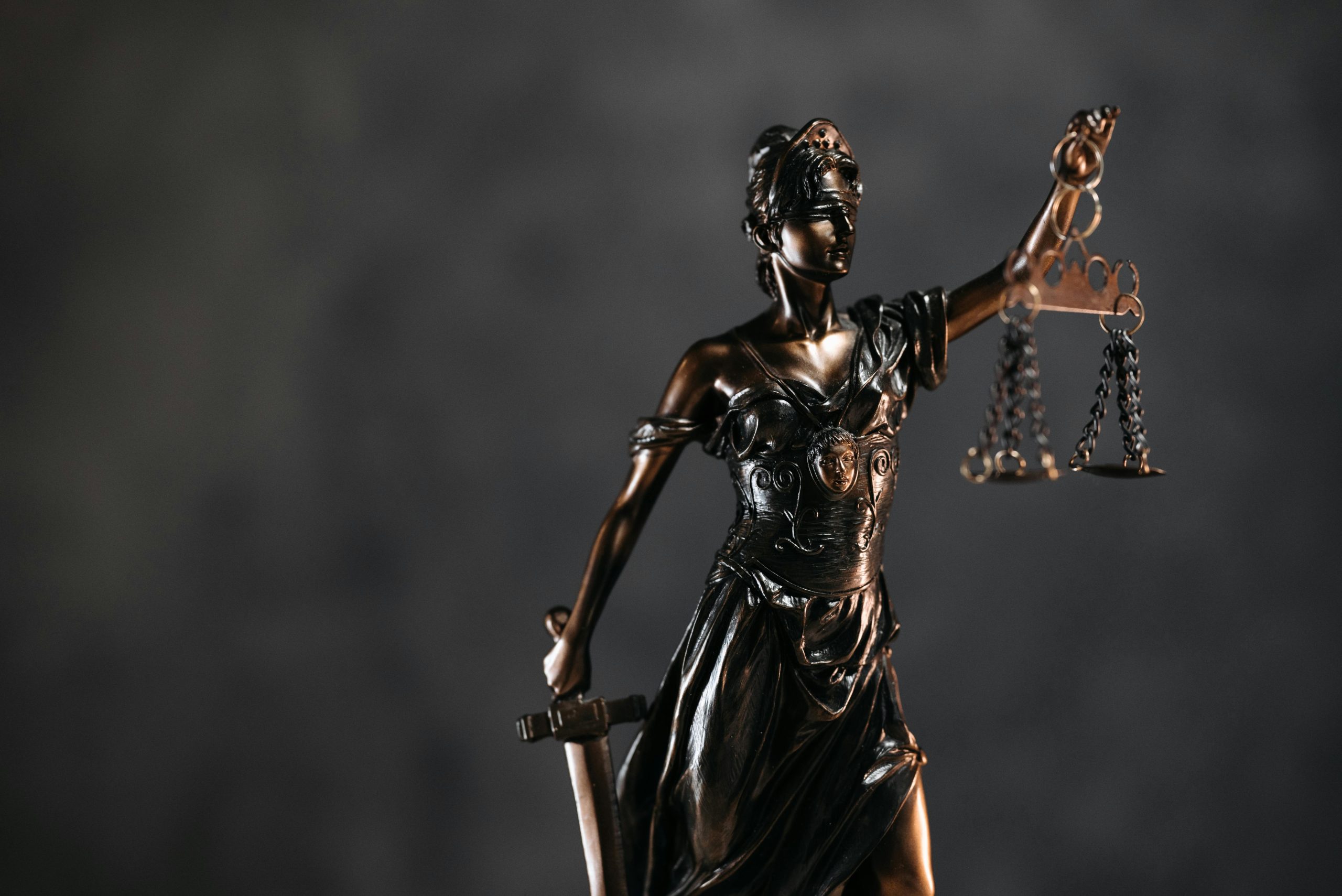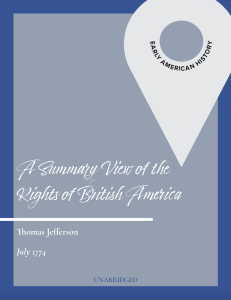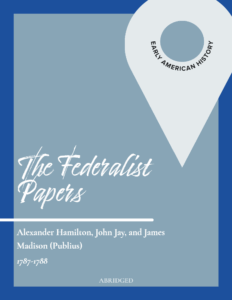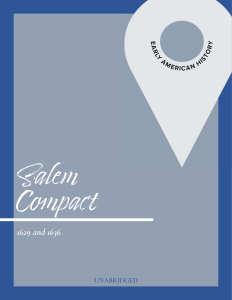
Political justice requires a government based on consent that protects the individual natural rights of each and every citizen.


Capital determines whether a society will be prosperous or poor, well-fed or not, populated by independent and self-reliant citizens or dependent subjects. An abundance of nutritious food, clean water, sturdy homes, safe modes of transportation, reliable sources of heat and power, modern medicines, and many other products and technologies that improve the quality of human life are impossible without capital.
A teacher can help students understand what capital is by encouraging them to think of capital as an individual’s “starter pack” for being productive and getting things done. Capital includes the tools, money, and other valuable resources a person needs to create something of value, or to solve a problem in order to create wealth.
For example, if you wanted to start a lemonade stand, the money you use to buy cups, lemons, water, and a sweetener is capital. While money is an important form of capital, capital can include other resources that help you create wealth for yourself by producing value for others.
Other Kinds of Capital:
Capital is anything you can use to “build” something that will provide experiences of value for other people. Money is the most obvious example of capital, but creativity, friendships, and even your honesty and intelligence, can be just as important, maybe even more important in some circumstances.
So, yes! Capital is cash and more: Capital includes any resource that helps you be more productive. Ask students: What kinds of capital do they have? Maybe it is their energy, ideas, or even their ability to make people laugh. Remind them that everyone—even people with little or no money—have important capital over which each person has much control: A person’s own reputation, honesty, and trustworthiness.
Evaluating incentives
One of the most important questions within any society is: Who will allocate capital? One possibility is that individuals choose whether, how, when, where, and why to spend their own money and invest their own capital. Another option is that political elites within government will tax citizens and confiscate the wealth that others have created, and then those in government will choose how to allocate other people’s their capital.
Individuals choosing how to invest their own capital have strikingly different incentives than politicians and bureaucrats in government spending other people’s money.
As we discuss in another section, profit is the happiness of other people. When individuals and business owners make their own choices about how to allocate and when to invest their own capital, they aim to earn a profit—they want a return on their investment—which is another way of saying they’re trying to make other people happy by producing value for them.
When those in government choose how to spend other people’s money, they serve their own interests, usually by expanding the scope and power of government. That is worth repeating: Business owners allocate their own capital in order to make a profit for themselves by making other people happy; government allocates other people’s capital in order to extend the power and control of government.
Every new government spending program, after all, requires expanding the class of unelected bureaucrats, adding new levels of control over what citizens may do, and adding new kinds of taxpayer-funded government competition to businesses and other private organizations.
Incentives of Allocation
For politicians and bureaucrats, resource allocation often means achieving political ends or aiming for short-term gains. Without direct knowledge of costs or profits, these decisions can be quite unpredictable.
When private individuals choose how to invest or spend their own money, they have strong incentives to make careful, strategic decisions. If they invest wisely, they personally reap the rewards; if they invest foolishly, they suffer the losses. This direct link between decisions and consequences encourages efficiency and accountability. Individuals are motivated to seek the highest return (or best use) for their funds, and they also bear the risk of losing their capital if a project fails.
By contrast, when those in government take capital from citizens through taxation, politicians and bureaucrats end up allocating resources that are not their own. As a result, several distortions can arise:
In short, when individuals allocate their own funds, they have personal incentives—financial risk and reward—to be careful stewards of their capital. When governments collect taxes and decide how to spend them, officials are allocating other people’s funds and often do so under weak or no incentives for efficiency, with less direct accountability for mistakes, and with political or bureaucratic considerations that can overshadow the goal of maximizing societal well-being.
 Nº1
Nº1
Description
Download PDF Download ePub Button 3
“Justice is the end of government,” The Federalist Papers #51 famously announced. Justice “is the end of civil society,” and it “will be pursued until it be obtained, or until liberty be lost in the pursuit.”
Justice is a central principle essential for securing individual rights, maintaining social order, and legitimizing a government. An unjust government is an illegitimate government; an unjust law is an illegitimate law.
Justice encompasses both personal justice (a virtue individuals exercise) and political justice (the structure, purpose, and powers of government).
1. Justice as a Moral Virtue (Personal Justice)
The American Founders, drawing from classical philosophy (e.g., Aristotle) and Enlightenment thinkers (e.g., John Locke), viewed personal justice as the virtue of giving others what is rightfully due to them.
Definition: Justice involves honesty, keeping promises, respect for private property, and adherence to moral and legal obligations in individual actions and relationships.
Example: It is unjust to spread rumors that a trustworthy person is untrustworthy.
Importance: Personal justice underpins a society of mutual civic trust, mutual respect, cooperation, and friendship. A just individual honors contracts, respects property rights, and refrains from violating the natural rights of others.
2. Justice as Politics (Political Justice)
Political justice, for the Founders, was about the proper organization and function of government to secure the natural rights—life, liberty, property, and the free pursuit of happiness—of each individual citizen.
Definition: Political justice is achieved when a government derives its powers from the consent of the governed and protects the individual natural rights—life, liberty, property, and the free pursuit of happiness—of each and every citizen (and/or restores as best possible a person who has suffered unjust loss or harm).
Example: It is unjust for government to pass and enforce laws that confiscate rather than protect the property of citizens.
Importance: The Founders emphasized that justice features a government bound by the rule of law, not arbitrary power. This ensures that laws apply equally to all and are designed to protect rights rather than infringe upon them. Where there is great political injustice and moral wrongs, the results can include civil discord, civil war, and revolution.
Moral Legitimacy: Citizens are far more likely to offer their allegiance to a just government that respects and protects their inherent natural rights.
Social Stability: Justice creates a framework for resolving disputes and ensuring that conflicts do not devolve into violence or social disorder.
Individual Flourishing: Personal justice enables people to pursue their happiness while respecting the freedoms of others and forming meaningful, important personal relationships and friendships based on trust.
The American Founders institutionalized justice through the United States Constitution, creating a framework designed to prevent tyranny, uphold individual liberties, and maintain the limited proper purpose of government. They understood justice as both a personal and political imperative—one that demanded vigilance and virtue from citizens and the institutions of government alike.


